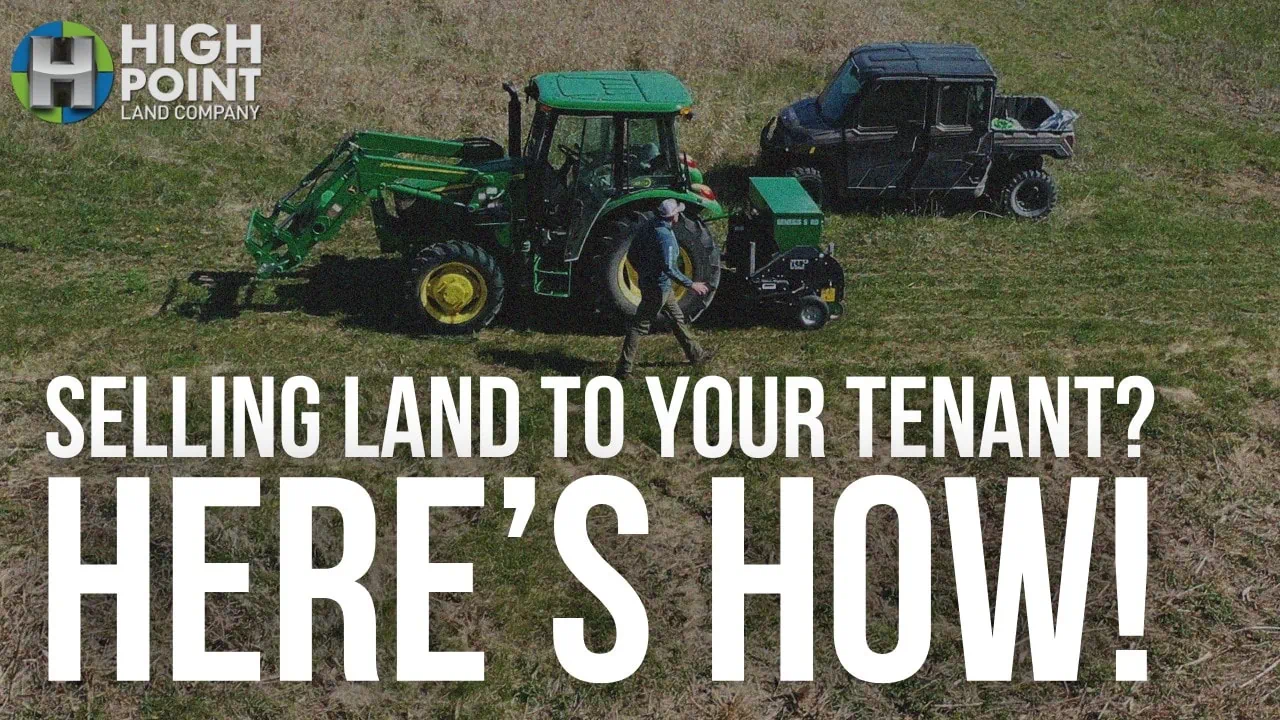Selling Land to Your Tenant or Renter: A Simple Guide

Nick Hopp
Iowa and South Dakota Land Specialist
One common question when it comes to selling estate-held properties, particularly tillable land, is: How do I sell my land to my tenant or renter? This situation often occurs when the same tenant has leased the land for generations. Often, these tenants have become stewards of the land, developing close relationships with the landowner and even the family. Their deep knowledge of the property and its upkeep makes them prime candidates to purchase the land.
However, selling land to a tenant can be more complicated than it seems. It is important to consider several important factors before deciding whether to sell estate-held property to your tenant or renter, especially when fulfilling fiduciary duties to beneficiaries.
The Benefits of Selling Land to Your Tenant or Renter
As a landowner, you may feel that your tenant, who has cared for the land for many years, should have the first opportunity to buy it. Tenants who have properly managed the farm or land are often seen as the best candidates for purchasing the property. In many cases, this arrangement can provide them with a solid investment, as they already have experience working the land and know its true value.
Additionally, selling land to a tenant can maintain a sense of continuity, especially in family-run estates, where the relationship with the tenant extends beyond just business. These long-term relationships often create a mutual understanding of the property’s history, which can make the transaction smoother.
The Challenge: Fiduciary Duty to Estate Beneficiaries
Despite the benefits, selling estate-held land to a tenant can present challenges – particularly when executors have a fiduciary duty to the beneficiaries of the estate. This obligation requires the executor to ensure the sale maximizes the value of the property for the heirs. For many estates, this means that the sale must be treated as a business decision rather than a personal one.
Appraisals can help assess the land’s value for a private sale, but they don’t always provide a clear picture of fair market value – especially when it comes to unique farmland or properties with special qualities. Some factors that can influence the land’s true value include market demand, local trends, and other external variables. These factors only become apparent after the property is offered publicly.
The Case for Listing Property on the Open Market
To address these challenges, beneficiaries often advocate for publicly listing estate-held property to capture fair market value. This approach can be hard to dispute, as it ensures transparency and can potentially lead to a higher sale price. Publicly marketing the land gives it exposure to a broader pool of potential buyers, and in some cases, competitive building can drive up the price beyond initial expectations.
The Risks of Selling Off-Market
On the other hand, many landowners choose to sell privately to their tenants or another interested party, bypassing the public market altogether. While this may seem like a simple, relationship-based solution, it often means leaving money on the table. Sellers may not be aware of the full value of their land due to lack of exposure to the wider market. In some cases, these private sales may result in significant financial losses for the estate.
While I fully understand and support the reasons why someone might sell directly to an individual for personal or relationship-based motives, it’s important to weigh these personal decisions against the potential financial benefits of a public sale. Ultimately, ensuring the best financial outcome for the estate is paramount.
How to Sell Estate-Held Property: Get Expert Guidance
If you are considering selling estate-held land, or simply want to understand the best way to go about it, High Point Land Company agents can help. Whether you are looking to sell to a tenant or explore your options on the open market, it is essential to understand the full scope of the process, from valuation to final sale. Contact a trusted Land Specialist to discuss the value of your land and the best options for selling an estate-held property.
Do you want to learn more?
For more questions regarding land real estate, visit our YouTube Knowledge Center.
With seven years of full-time experience as a land specialist in Iowa and South Dakota, Nick Hopp has distinguished himself as a leading expert in the field. Nick has successfully facilitated the sale of thousands of acres, setting numerous township and county records through his adept use of proven auction and real estate strategies. If you are interested in selling your farmland, call Nick at 319-240-6121 or email him at nick@highpointlandcompany.com.
